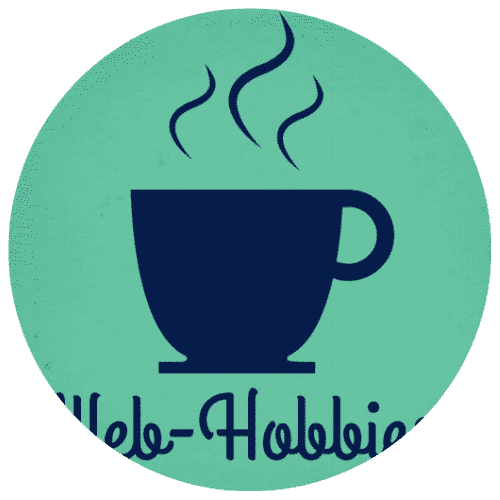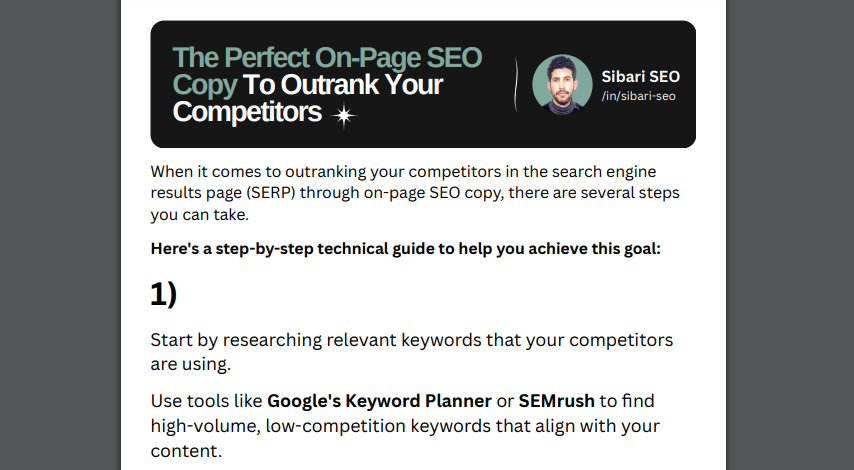
When it comes to outranking your competitors in the search engine results page (SERP) through on-page SEO copy, there are several steps you can take.
Here’s a step-by-step technical guide to help you achieve this goal:
1) Competitors Keyword Research
- Start by researching relevant keywords that your competitors are using.
- Use basic tools like Google’s Keyword Planner or advanced ones like SEMrush to find high-volume, low-competition keywords that align with your content.
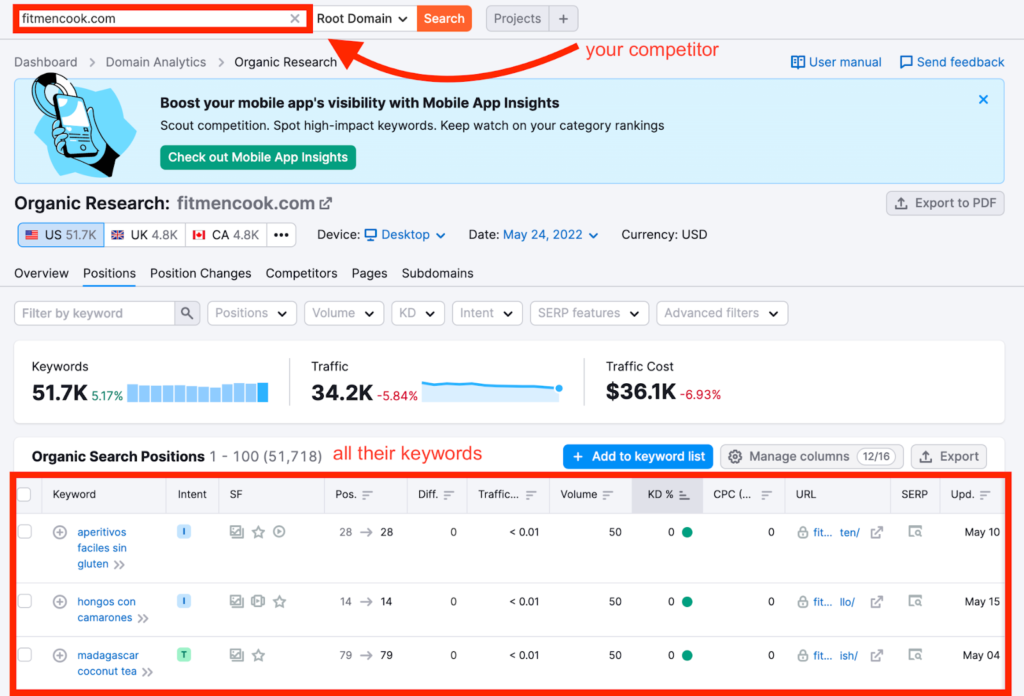
2) Title Tag
- Your title tag should accurately describe the content on your page and include your target keyword.
- Keep it under 55 characters to avoid truncation in the SERP.

3) Headings
Use header tags (H1, H2, H3) to structure your content and make it easier for search engines to understand.
Include your target keyword in at least one header tag.
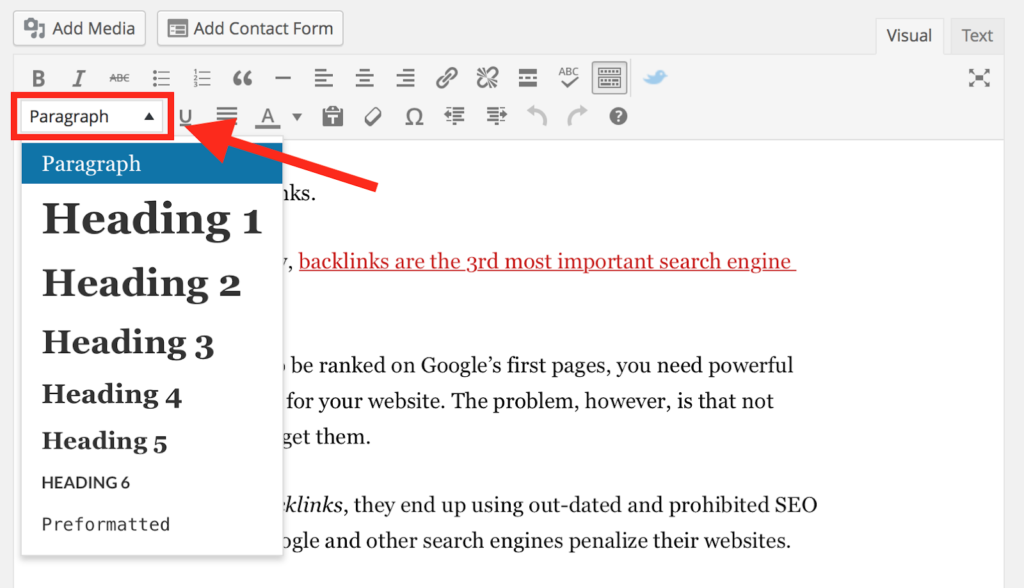
4) Meta Description
Your meta description should be a short and compelling summary of your content, including your target keyword.
Keep it under 155 characters.
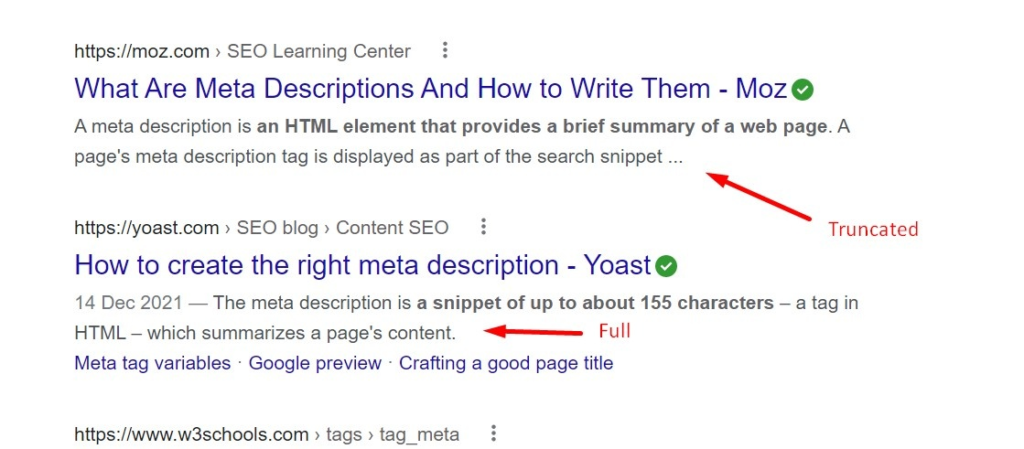
5) Internal/external links
Include internal links to related content on your site and external links to high-quality sources.
This helps search engines understand the context of your content.

6) File Names
Use descriptive file names and alt tags for your images, including your target keyword where appropriate.

7) Speed
Use a fast hosting provider and optimize your images and code to ensure your pages load quickly.
This is a ranking factor in Google’s algorithm.

Conclusion
By following these steps, you can improve your on-page SEO and outrank your competitors in the SERP.
⭐ Remember to focus on creating high-quality, relevant content that provides extra-value to your audience and cover the right user search intent.
